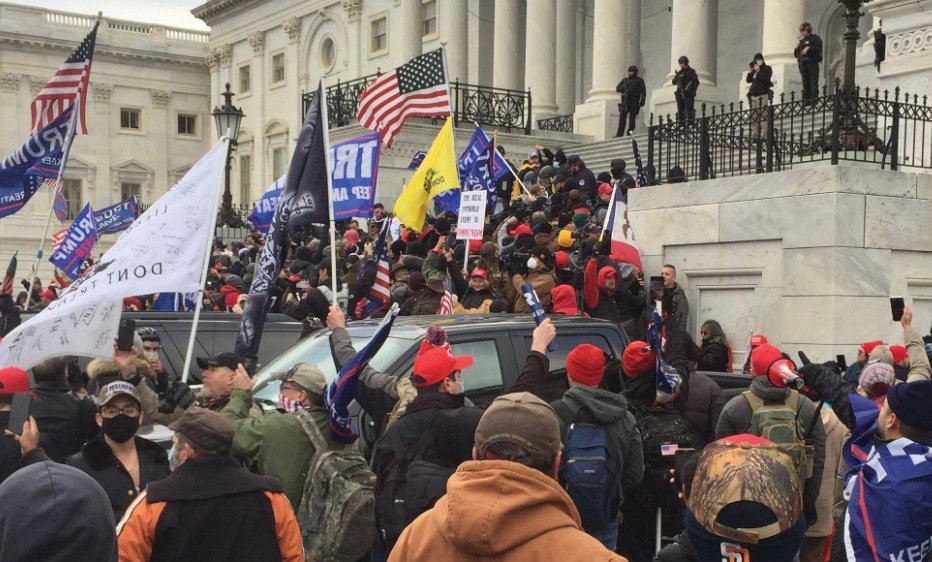Political violence, in the form of threats, intimidation, or physical harm, is eroding the health and stability of democracy in the United States, according to experts and recent reports. The increasing incidents of political violence are affecting various aspects of democratic life, such as freedom of expression, freedom of association, voting access, election processes, equality before the law, protection of individual liberties, and the separation of powers. The most concerning area is the electoral process, which has a high potential of breaking down in the future due to political violence.
The Rise of Political Violence in the US
Political violence is not a new phenomenon in the US, but it has escalated in recent years, especially after the 2020 presidential election and the January 6, 2021, attack on the US Capitol. According to the Armed Conflict Location and Event Data Project (ACLED), there were more than 10,000 political violence and demonstration events in the US in 2020, resulting in over 100 fatalities and more than 3,000 injuries. The majority of these events were peaceful protests, but some turned violent or were met with violence by counter-protesters, law enforcement, or extremist groups.
Some of the factors that have contributed to the rise of political violence in the US are:
- The polarization of the political landscape, which has created a deep divide between the supporters of different parties, ideologies, and candidates
- The spread of misinformation, disinformation, and conspiracy theories, which have fueled distrust, anger, and fear among the public
- The radicalization of some individuals and groups, who have resorted to violence as a means of expressing their grievances or advancing their agendas
- The failure of the political leadership and institutions, which have not adequately addressed the root causes of the social and economic problems facing the country or condemned the acts of violence

The Impact of Political Violence on Democracy
Political violence is not only a threat to public safety and order, but also to the functioning and legitimacy of democracy. When violence is used to suppress, coerce, or influence the political opinions, choices, or actions of others, it undermines the core principles and values of democracy, such as:
- Freedom of expression, which allows people to voice their views and opinions without fear of retaliation or censorship
- Freedom of association, which enables people to form and join groups and organizations that share their interests and goals
- Voting access, which guarantees people the right and opportunity to participate in the electoral process and choose their representatives
- Election processes, which ensure that the elections are free, fair, transparent, and credible
- Equality before the law, which protects people from discrimination and guarantees them equal rights and justice
- Protection of individual liberties, which safeguards people from arbitrary or unlawful interference with their privacy, security, or autonomy
- Separation of powers, which prevents the concentration of power in one branch of government and provides checks and balances among the executive, legislative, and judicial branches
Political violence can damage democracy in various ways, such as:
- Deterring or preventing people from expressing their views, joining groups, or voting, thus reducing the diversity and representation of the political system
- Disrupting or interfering with the electoral process, such as by intimidating or attacking candidates, officials, or voters, or by spreading false or misleading information about the results, thus undermining the integrity and credibility of the elections
- Eroding or violating the rule of law, such as by discriminating or harming people based on their political affiliation, or by ignoring or defying the legal authorities or decisions, thus weakening the respect and compliance with the law
- Endangering or infringing on the rights and freedoms of individuals, such as by invading their privacy, threatening their security, or restricting their autonomy, thus violating their human dignity and well-being
- Destabilizing or challenging the balance of power, such as by attempting to overthrow or influence the government, or by obstructing or undermining the functions of the other branches, thus threatening the constitutional order and governance
The Need for Action and Dialogue
Political violence is a serious problem that requires urgent action and dialogue from all stakeholders, including the political leaders, the media, the civil society, and the public. Some of the possible steps that can be taken to address the issue are:
- Condemning and rejecting violence as a form of political expression or action, and holding the perpetrators accountable for their actions
- Promoting and protecting the rights and freedoms of all people, regardless of their political views or affiliations, and ensuring their safety and security
- Strengthening and reforming the electoral process, such as by enhancing the security and transparency of the voting system, and by ensuring the accuracy and reliability of the information and communication
- Reducing and bridging the polarization of the political landscape, such as by encouraging civil and respectful dialogue and debate, and by fostering cooperation and compromise among the different parties, ideologies, and candidates
- Addressing and resolving the underlying causes of the social and economic problems facing the country, such as by implementing effective and inclusive policies and programs, and by providing adequate and equitable resources and opportunities
Political violence is poisoning American politics and damaging democracy. It is a challenge that demands the attention and action of all who care about the future of the country and its democratic system.

Comments